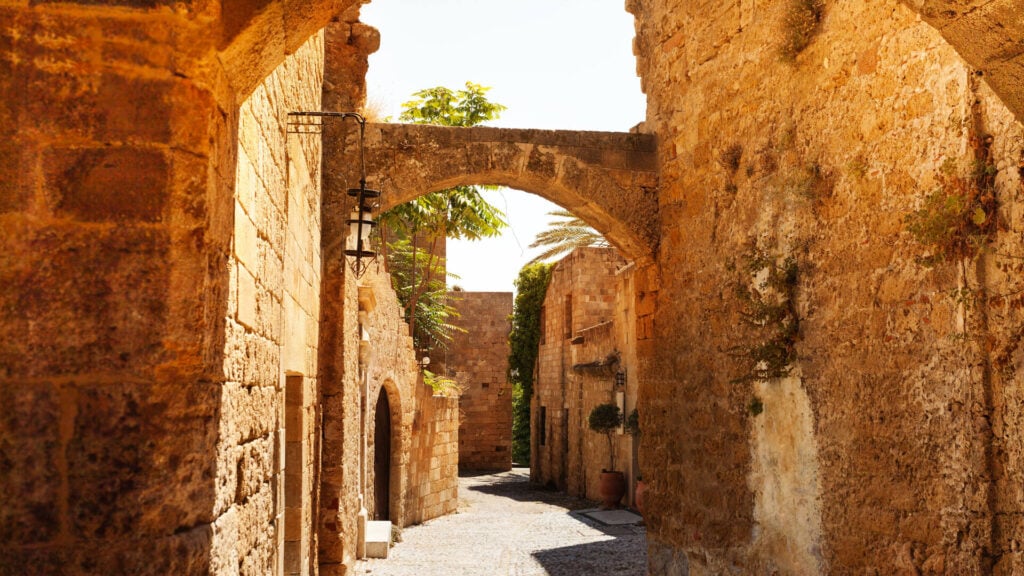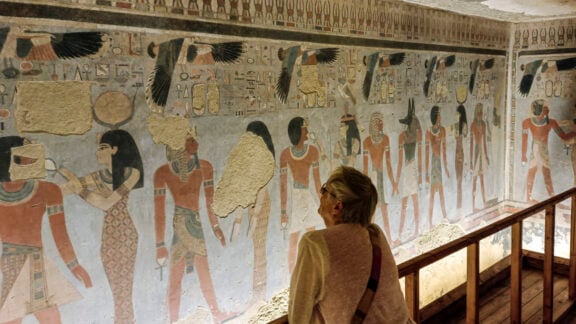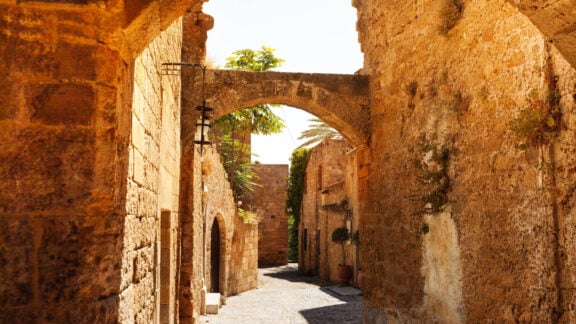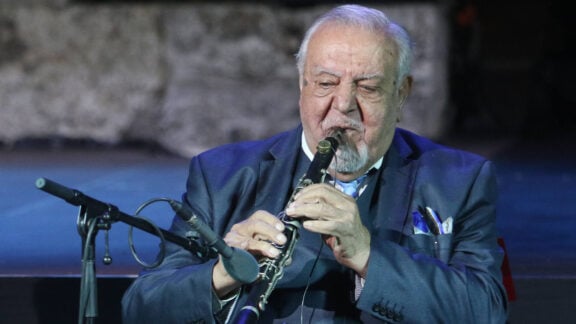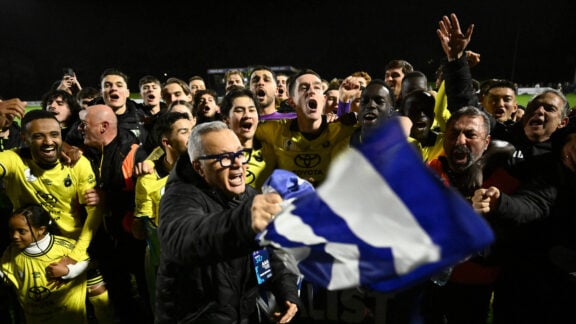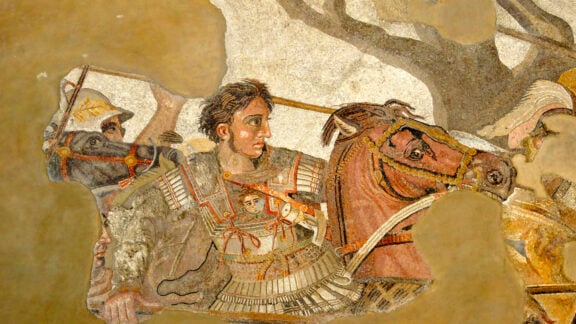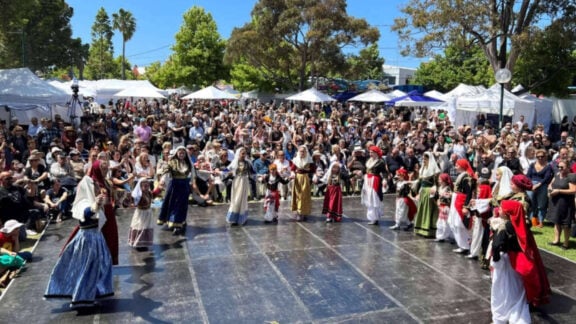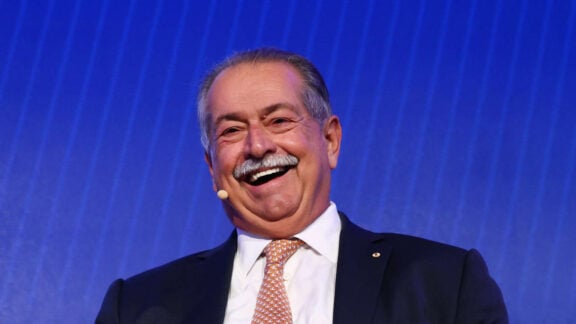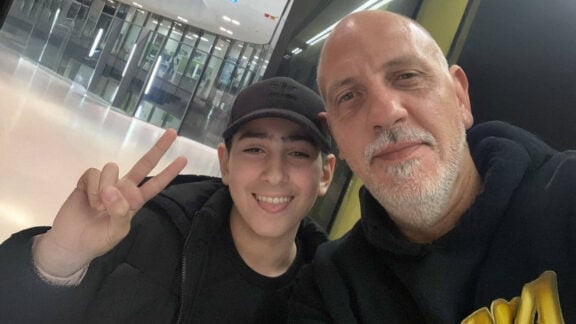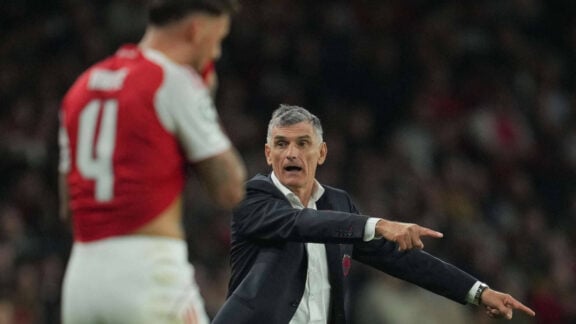Growing up in the northern suburbs of Melbourne, I was friends with many diverse Australians — and, of course, many were Greek Australians. My first trip to Greece was in the mid-eighties, as a young, wide-eyed backpacker. I had a ball and loved Athens’s beautiful chaos. Nearly 40 years later, this time with my wife, Robyn Peel, I returned for a month in Greece.
Athens then and now
Athens is now a thriving, multicultural city, with most signs in English. As most Athenians now speak English, and other languages. On my first trip, English speakers were less common. With mass tourism, this was no surprise. While globalisation has made English the “international language,” it hasn’t diminished the Greek peoples’ pride in Greece and its history. I saw the Greek flag flying everywhere—not as jingoism, but as pure pride in Hellenism. We started in Athens, but stayed just long enough for a swim, dinner and a sleep before flying to Rhodos or Rhodes. Neither of us had been to Rhodos before—a beautiful place with wonderful people.
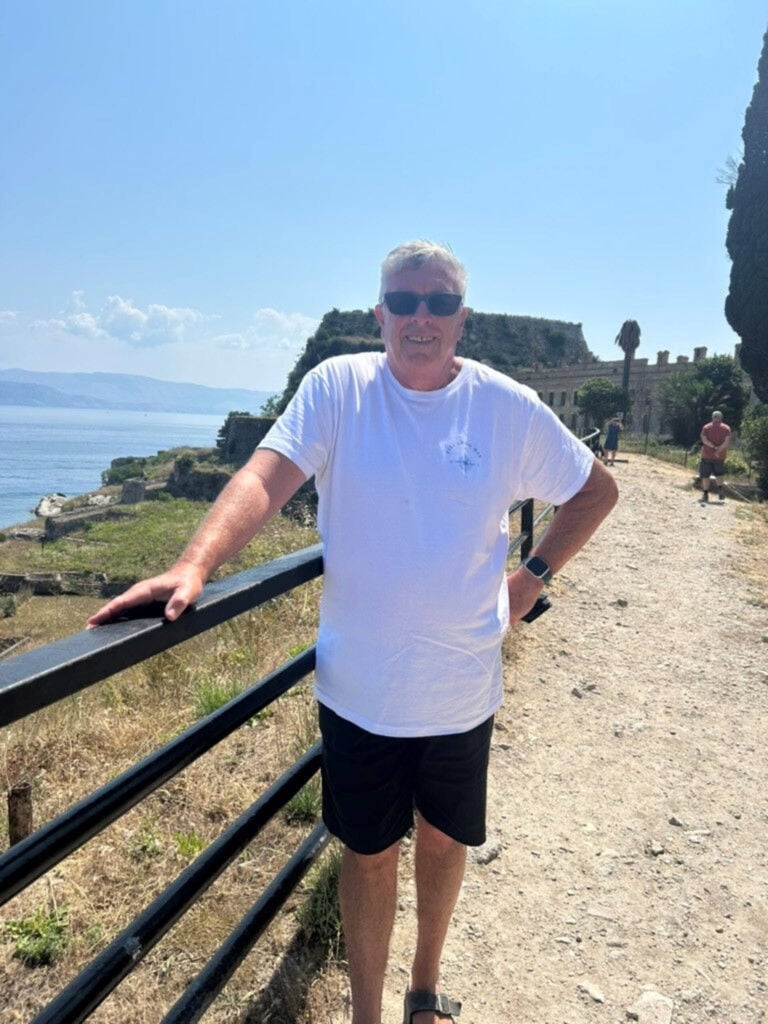
The island is closer to Turkey, than mainland Greece, has been seen as a strategic prize by all super powers throughout different periods of history. The Hospitaller Knights, in 11th-century founded in Jerusalem to aid pilgrims, became a powerful crusading force, later known as the Knights of Rhodes where they set up hospitals for pilgrims and wounded crusaders. Rhodos then like all of the Byzantium and Greece fell under the colonial rule of the the Ottomans for 400 years, then the Venetians, then British, then Italians and British and finally at the end of World War II, back to Greece.
We explored the Old Town, visited the stunning Filermos Monastery (more tourists than monks, but still worth the trip), and wandered Butterfly Valley—a beautiful walk, though best during butterfly season. We visited the fishing island of Symi and swam in St George’s Bay. On our final night in Rhodos, a 6.8 magnitude earthquake brought everyone out onto the streets—no one hurt, no damage, apparently a regular occurrence.
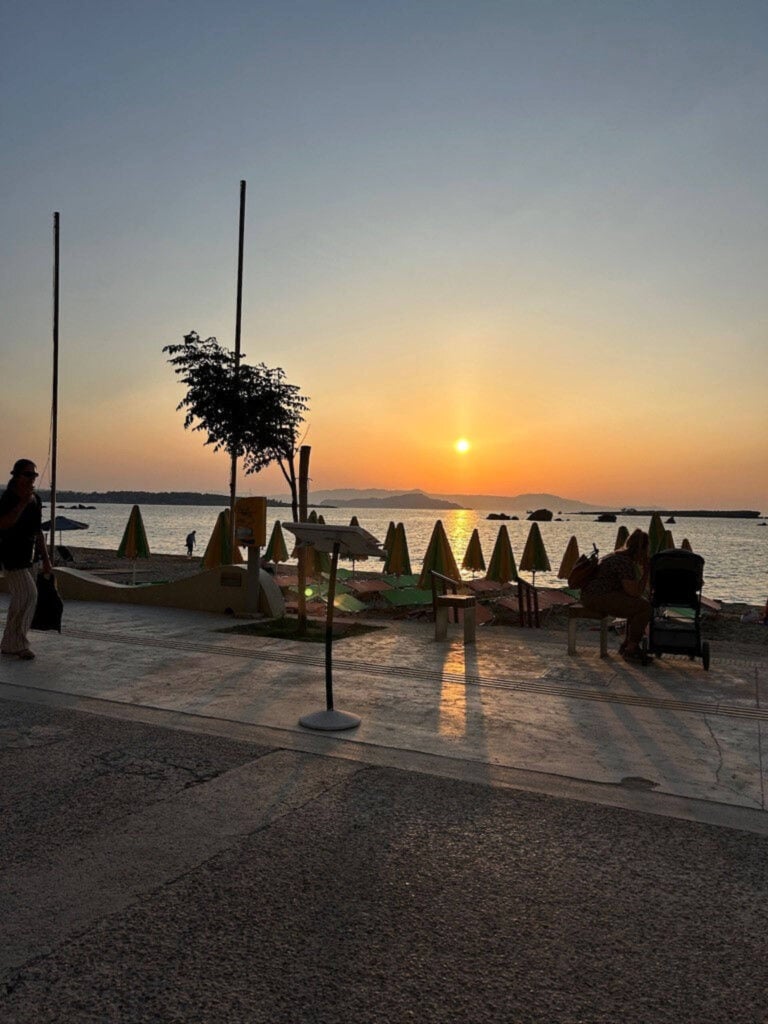
Our flight to Crete was delayed circling above Heraklion due to another earthquake. I began to wonder if this itinerary was a good idea. We headed to Chania and were impressed by the old port, beautiful sunsets and warm hospitality. We took a bike tour and learned about the WWII atrocities by the Nazis in Crete and Australia’s wartime connection. The Battle of Crete (20 May – 1 June 1941) saw Australian, British, New Zealand, Greek, and German forces clash in the first major airborne invasion of WWII, ending in German victory, a British evacuation, and Australians left behind who survived by joining and fighting with Greek partisans during four years of occupation. A brutal wave of reprisals swept the island, with Nazi forces massacring civilians — including pregnant women, children, and the elderly — driven by a ruthless desire for vengeance. Our bicycle tour and our walk through Imbros Gorge gave us increased knowledge and a vastly stronger connection with the people of Crete.
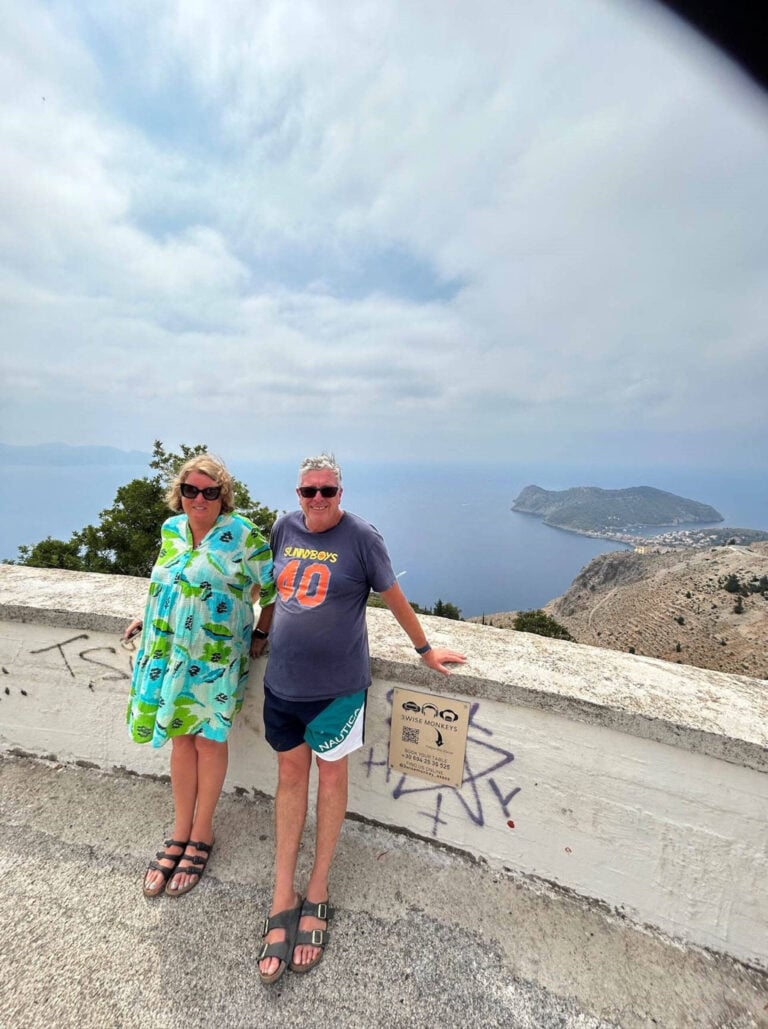
Our guide worried about over-tourism’s impact and worked two jobs to get by. We walked to the Chania Archaeological Museum—great to visit a museum where nothing seemed to have been stolen by the British. Our next walk, the “easy one” through Imbros Gorge, reminded me that flimsy runners were a mistake in a place once used by Cretan Resistance Fighters.
Off the well-ron tourist track in the Peloponnese
We visited Sparta, including the Archaeological Site of the Acropolis and the Leonidas Monument. Cafés were buzzing with locals on a Sunday. In Kalamata, we found a lovely taverna with stunning food and hospitality.We took a less-beaten path to the coastal village of Kakovatos via Olympia, where tourist crowds flocked to the original Olympic Games site.
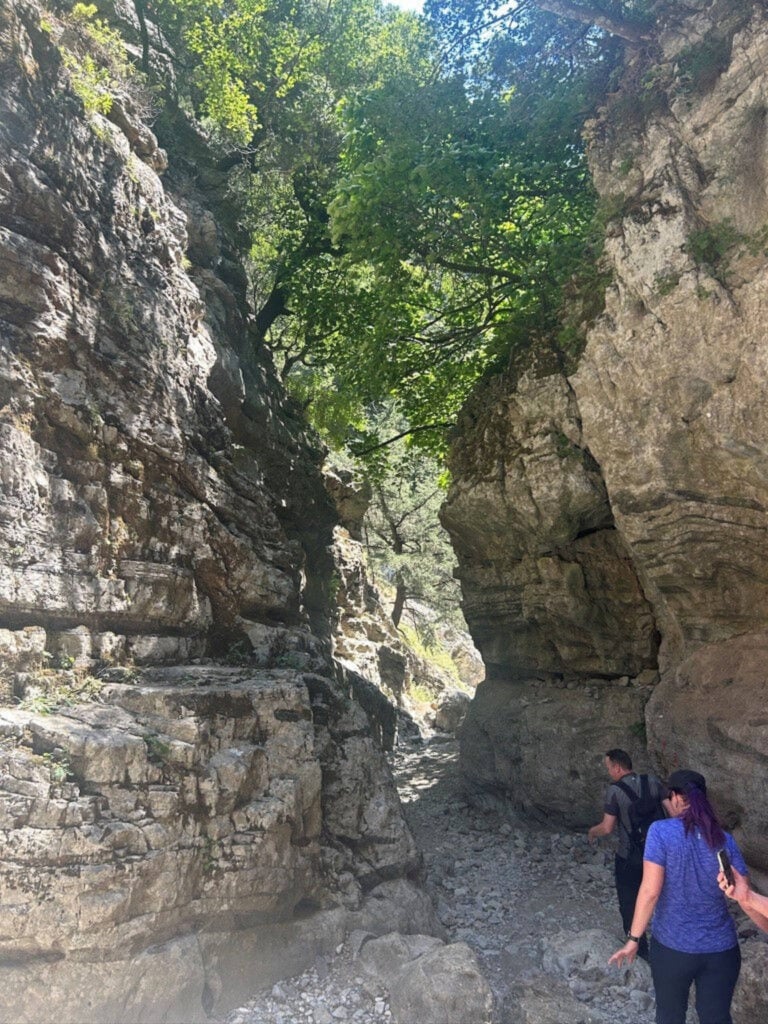
The crowds vanished at lunch, and we continued to Kakovatos—a charming village with little international tourism except us. Our neighbour at the accommodation was English, having arrived for a holiday 14 years ago and never left. After a couple of lazy days, we stopped at a service station restaurant for breakfast—apologetically only omelettes available, but it was delicious, as was the coffee. No apology was needed.
Next, Nafplio—a stunning mountain drive, filled with tourists, but still beautiful. We stopped in Patras before heading to Lefkada to start our sailing trip around the Ionian Islands. Sailing by day, swimming at secluded beaches, were amazing experiences. Just a tip: don’t let your dinner companion order “the best Rose you have”— it was lovely, unlike the price.
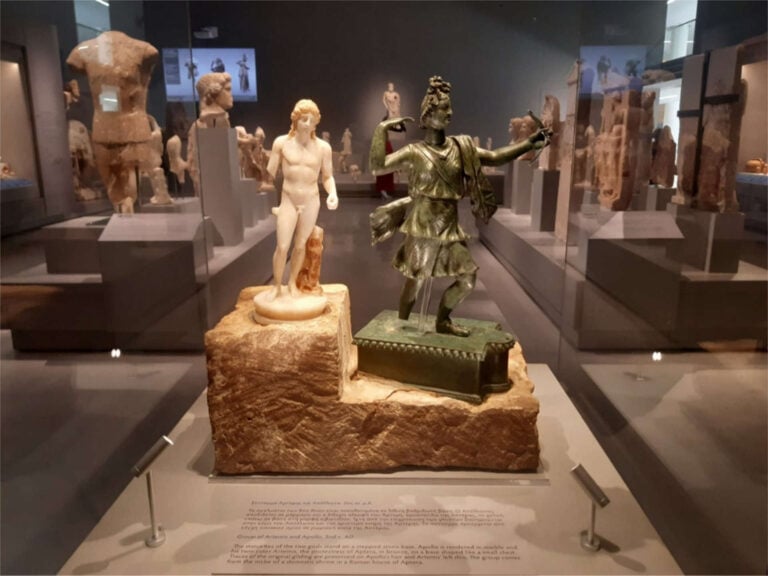
Sailing the Ionian and a farewell to Athens
After “our” yacht, it was time to rejoin the masses on the ferry to Corfu. Corfu was as I remembered, though it took a couple of days to recall the beach I’d wanted was a bus ride away. Here I saw the impact of cruise ships—good for the economy, less so for visitors. From Corfu, we visited Saranda, Albania. No disrespect, but Saranda isn’t the Riviera, though we enjoyed ourselves and noted similarities to Greek Islands forty years ago.
All good things end. We left Corfu for two nights in bustling Athens, soaking up the vibrant atmosphere.
Greeks are justifiably proud of their influence on the world through history, philosophy, politics and culture. I reflected on how many Australians are proud—or even aware—of our incredible First Nations’ culture, the world’s oldest living culture that exists here.
* Peter Redden has worked in arts and event management and community engagement for over 35 years. Having worked in private and public organisations, festivals, and major institutions, he now spends a lot of his time planning holidays.
